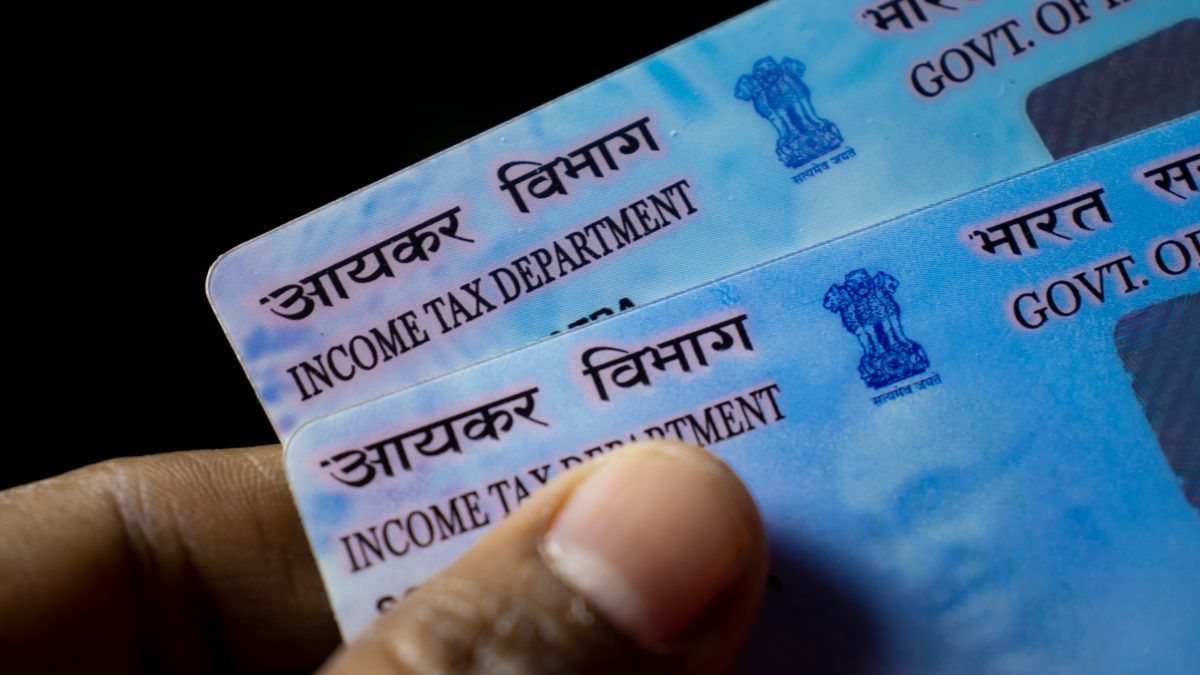One of the most important documents for Indian taxpayers, a PAN or permanent account number, functions as your proof of identity. However, it is primarily required for financial activities and performing transactions. This 10-digit alphanumeric identifier is provided by the Income Tax Department and overseen by the Central Board of Direct Taxes.
A PAN is given to individuals and entities and was designed to properly track monetary transactions, thus curbing tax evasion and fraudulent activities. You need to furnish your PAN details for almost all financial activities—from opening a bank account to depositing the amount in a fixed deposit at a bank or NBFC.
Similarly, companies wanting to sell their products online through online marketplaces or offline must have a business PAN. Let us now understand the role of a PAN card in conducting financial transactions.
Table of Contents
Role of PAN card in financial transactions
Whether you wish to open a new bank account, invest in stocks, or purchase a property, you need your PAN card. The following are some of the uses of a PAN card in financial transactions.
Role of PAN card in banking
When opening a new bank account, one of the most crucial documents you must furnish is your PAN card. Financial institutions, including banks, utilise your PAN to track financial transactions and ensure they are in compliance with tax regulations. Here are some key points about the role of PAN cards in banking.
- You are required to provide your PAN details while opening a savings account, current account, or fixed deposit with the bank.
- You are required to provide your PAN details while opening a savings account, current account, or fixed deposit with the bank.
- You must submit PAN details while making cash deposits of Rs. 50,000 or more in a single day.
- PAN details are also mandatory when applying for a loan since lenders use your PAN information to assess your financial history and assess creditworthiness to verify loan eligibility.
- Your PAN information is also required to track the interest earnings on your savings accounts and FDs. This ensures accuracy in the TDS that is deducted.
Role of PAN card in investments
A PAN card aids the government in tracking investments, making it a vital document for the government and tax authorities. This ensures that taxpayers pay the correct amount on capital gains. Let us look at how a PAN card is utilised in different types of investments:
- If you wish to invest in the stock market, you must have a PAN card. You cannot open a trading or Demat account otherwise, and the latter is used to hold your shares electronically.
- For those investing in mutual funds, it is mandatory to have a PAN card if the transactions exceed Rs. 50,000. This is because a PAN card helps track your investments and capital gains earned on them.
- You also require a PAN card if you wish to invest in bonds and debentures. It aids in tracking the interest income while ensuring proper tax deductions.
- If you want to purchase gold worth more than Rs. 2 lakhs, you must furnish your PAN details, as it ensures transparency in high-value transactions and curbs tax evasion.
Role of PAN card in property transactions
A PAN card plays a vital role when it comes to purchasing or selling properties. This is because PAN ensures transparency and prevents tax evasion in real estate dealings.
- While buying any property whose value exceeds Rs. 10 lakh, you must furnish your PAN information. This applies to commercial and residential properties.
- While selling your property, it is mandatory to quote your PAN in the sale deed. This allows the tax authorities to track capital gains from the sale while ensuring correct taxes are paid.
- When you apply for a home loan, lending institutions ask for your PAN to check your financial history and assess your creditworthiness.
- PAN is also mandatory for rent agreements where the annual rent amount exceeds Rs. 1 lakh.
Conclusion
A PAN card is one of the most important documents for Indian taxpayers, as it helps the government and tax authorities track financial transactions to ensure compliance with tax laws and curb tax evasion. PAN details are required for performing various financial activities, such as opening a bank account, trading in the stock market, and purchasing a property.

